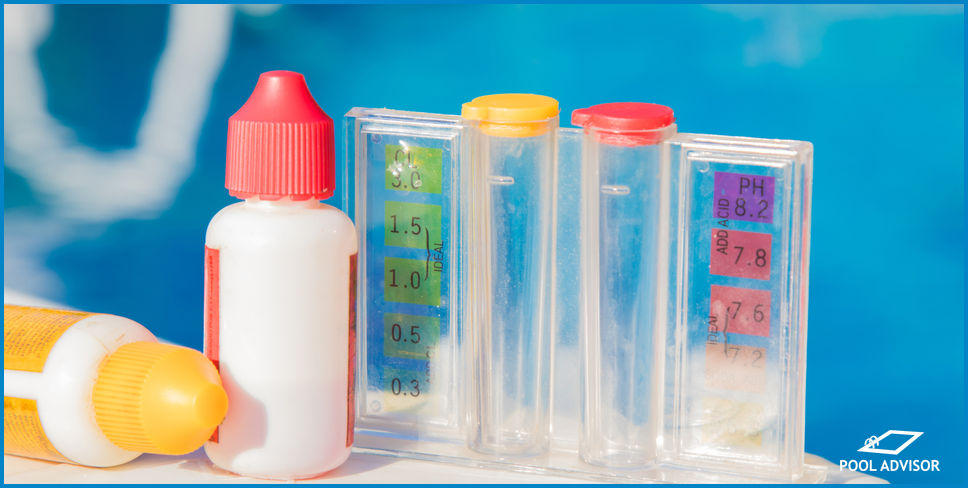
How To Test Pool pH - 4 Simple Methods
Testing the pH of your pool is an important part of regular pool maintenance. It is recommended that you test your pool’s pH levels 2-3 times per week, but how exactly do you do it?
In this article, we will discuss how to test pH in pool water using different methods, as well as some pros and cons of each method.
How To Check Pool pH
There are many methods of checking your pool’s pH, and some of these are more preferable than others. For each testing method listed below, we talk about how to use the test, its affordability and precision levels, and anything else you should consider about that type of test.
Testing Strips
Testing strips are widely used for testing pool chemicals because they are a budget friendly option that is quick and simple. Most pool test strips already include a test for pH, so you can kill many birds with one stone here.
To test your pH, simply dip the testing strip into your pool’s water for the amount of time specified in the instructions. Then, after colours develop on your testing strip, you will compare these colours to the chart provided in order to determine your pool’s pH.
Test strips are not always the most accurate. They have shorter shelf lives than other testing methods, and can lose effectiveness if they are stored incorrectly, such as in too humid of an environment.
They are fairly precise at measuring pH. While strips can sometimes deliver less precise readings for other chemical levels, pH test technology is well-developed and will often return an exact value for the pH of your pool, rather than a range.
Liquid Test Kits
Liquid test kits are the most common method for testing pool chemicals of all kinds, including pH. Many pool owners start with a basic 2 in 1 liquid test kit that tests for both free chlorine levels and pH, but more thorough kits are available.
These kits are slightly more expensive and slightly more accurate than test strips. They are fairly easy to use, though not as dead simple as the strips.
To use a liquid test kit, you will fill the provided vial with the correct amount of pool water. Then, you will add drops of the appropriate testing solution, and follow any instructions for mixing the sample.
Afterwards, you will compare the colour of this solution to the chart provided in order to determine your pH level.
Liquid test kits are fairly accurate, and so long as they are kept properly sealed and stored in moderate temperatures they tend to maintain a fairly long shelf life.
Digital pH Meters
Digital pH meters are a much more costly option than the traditional testing methods we’ve already mentioned.
However, these pH meters will last for a very long time in comparison and do not require that you purchase any refills or extra reagents, making them a great choice for those who enjoy investing in gadgets.
To use a digital or electronic pH meter, simply dip the probing end of the wand into your pool's water to instantly read the pH levels.
These meters also come with special features, such as a ‘hold’ function and auto-stabilisation features in order to give you the most precise readings of any test type.
Local Pool Shop
To test your pool’s pH, you can also take a water sample to your local pool store that offers water testing. However, due to the fact that pH should be tested 2-3 times per week, this is not really an effective way to maintain your pool.
Even if you live reasonably close to the pool store, you are likely to spend much more time and money transporting your water samples than if you bought relatively inexpensive test kits for the same purpose.
Conclusion
When testing your pool’s pH, there are many different testing methods to choose from. While testing strips and liquid test kits are the most widely-used options among pool owners, other methods are also available that may be helpful in your scenario.
Once you’ve tested your water, you’ll know whether the pH needs to be raised, lowered or left just as it is!
Do you have any questions about how to test pool pH? Get in touch with us in the comment section, we’d love to help!

Louis
A chemical engineer by trade, Louis is committed to debunking myths in the pool industry by explaining the underlying chemistry and making it accessible to all.
